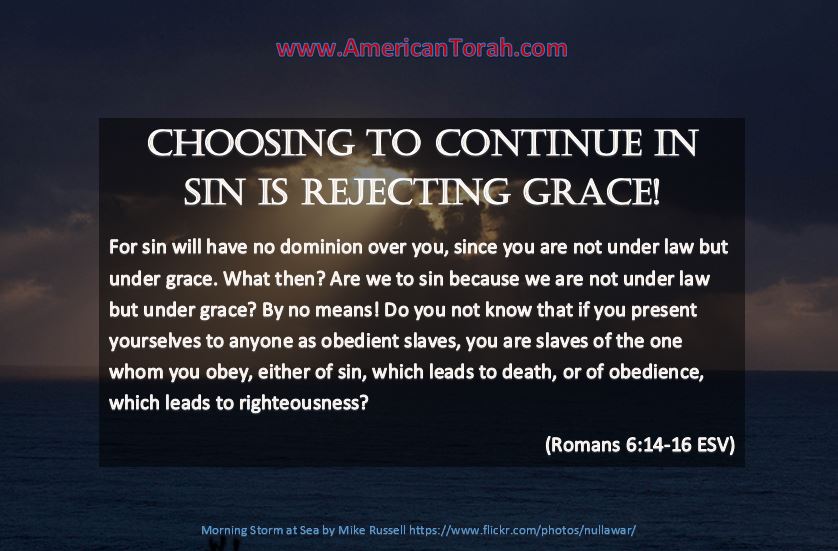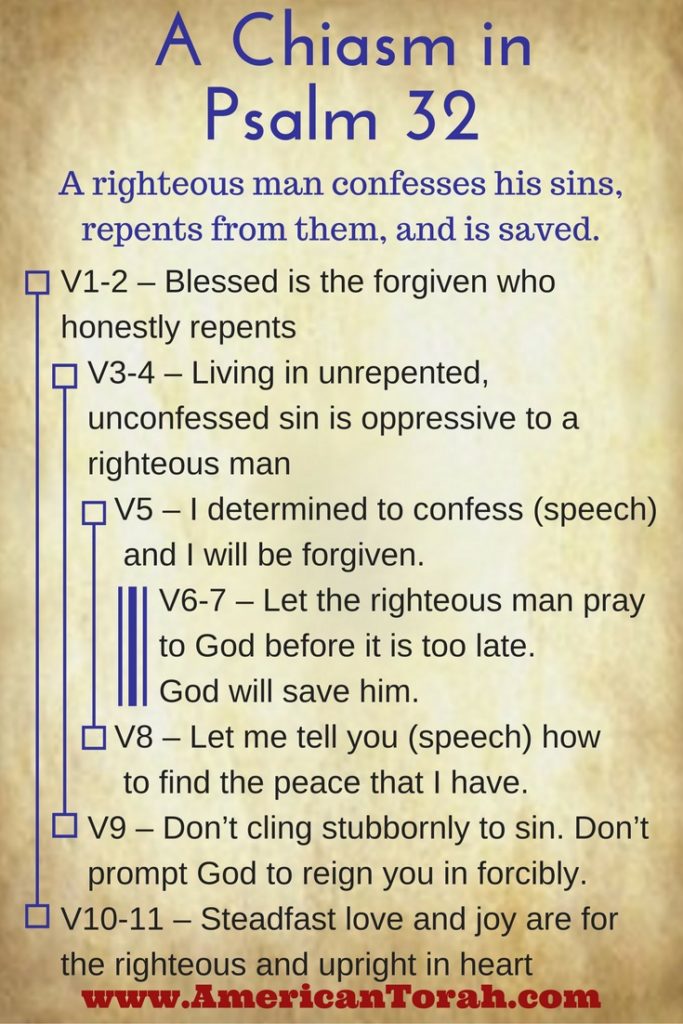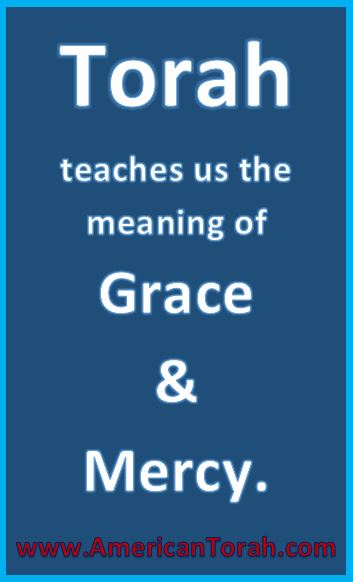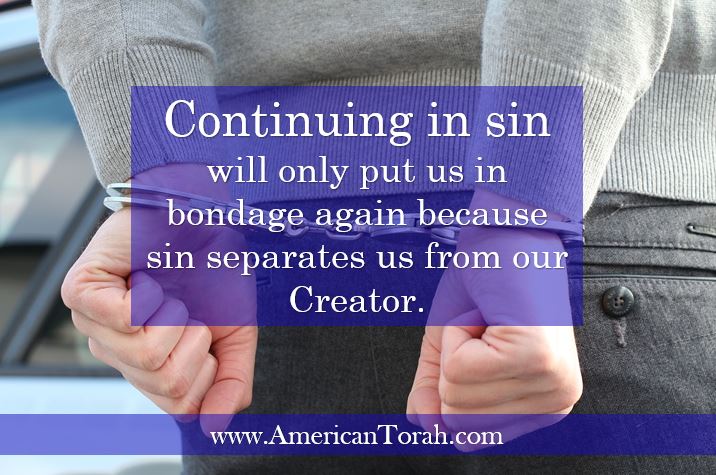
Faith is the substance of things hoped for, the evidence of things unseen. (Hebrews 11:1)
We’ve all heard that quote many, many times. It’s one of the most instantly recognizable verses in the Bible. We repeat it like a mantra and cling to it like a baby’s blanket, but hardly anybody knows what it means.
I realize that might sound a little presumptuous. Faith is a thing of the heart, and I can’t see anyone else’s heart. Right?
Yes and no. Faith is the evidence of something unseen, but things that are seen are the evidence of faith.
Faith is not believing that you’re going to get what you want. It is not believing in the existence of God or Jesus or anything else. As James wrote, even the demons believe that. (James 2:19) Surely we need to do a little better than them!
Faith is believing in the person of Yeshua haMashiach (Jesus the Christ), believing in his name. That has nothing to do with how the personal label that we commonly refer to as “name” is spelled or pronounced. Faith is not believing that his name is Jesus or Yeshua or Yehoshua or whatever flavor you favor. “Name” in this context refers to his reputation, authority, and trustworthiness, as in “A good name is better than great riches.” (Proverbs 22:1) If you believe in the name of Yeshua, if you believe in the name of YHVH, then you believe that he is who he says he is, that he means what he says, that he isn’t capricious, that he never changes, and that he keeps his promises.
Faith is trusting in God’s word. Faith equals trust.
How does your behavior toward another person change if you have faith in that person? You listen to what he says. You take his advice. How does your behavior toward God change if you have faith in him? You obey him. This is what James meant when he wrote that faith without works is dead. (James 2:14-26) If your faith does not lead you to greater obedience over time, then your faith is a vapor. Nothing but hot air.
What else happens when you have faith? Mountains and trees start moving. Probably not literally, but in a manner of speaking.
“Truly, I say to you, if you have faith like a grain of mustard seed, you will say to this mountain, ‘Move from here to there,’ and it will move, and nothing will be impossible for you.” (Matthew 17:20)
According to Scripture, the sick, injured, and disabled are made well by faith. It doesn’t say made well if it fits into God’s plan or if the stars are aligned. James wrote, “The prayer of faith will save the one who is sick, and the Lord will raise him up.” (James 5:15)
A couple more examples:
Jesus turned, and seeing her he said, “Take heart, daughter; your faith has made you well.” And instantly the woman was made well. (Matthew 9:22)
And Jesus said to him, “Go your way; your faith has made you well.” And immediately he recovered his sight and followed him on the way. (Mark 10:52)
There are a lot more where those came from if you need more.
This is a hard thing to accept. We all suffer. We are all sick. We all know of someone who died of an illness or injury. Nobody wants to believe that the only thing standing between wellness and suffering is a simple matter of trust, but the testimony of Scripture is crystal clear: “The prayer of faith will save the one who is sick.”
But we also know that many people of apparently great faith have suffered. Timothy had chronic stomach problems. King David grew feeble and died at a relatively young age. There is no question that these men had faith!
How is it possible for Yeshua to say that faith will make you well while we know that many great people of faith were not well?
I think here is where we encounter the problem of not being able to see into other people’s hearts. It isn’t necessarily that they don’t have faith–they might or might not–but that they have not yet attained the level of faith to which God is leading them in their current trial.
Personal trials–including sickness, persecution, and every other evil which the faithful suffer–are never without purpose, and that purpose is never to inflict pain simply for the sake of pain. Our God isn’t cruel or spiteful. Nothing can come against you unless God allows it, and “all things work together for the good of those who have faith in God.” (Romans 8:28)
Count it all joy, my brothers, when you meet trials of various kinds, for you know that the testing of your faith produces steadfastness. (James 1:2-3)
The purpose of all trials is the building of faith. If you have given your life to Yeshua, then you will suffer trials, if not by the hand of men, then by the hand of God. God doesn’t enjoy your pain. He hates it! But very little spiritual growth comes without hardship of some kind.
Almost anyone who has accumulated a great deal of earthly wealth will tell you that it wasn’t easy, and if it came easily, it goes easily too. It follows then that anything of eternal value–I don’t mean salvation itself, but the rewards of the faithful in Heaven–must be that much more difficult to obtain, and “difficult” is a relative concept. Some people learn multiple languages easily, while others struggle with even one language. Some people understand computers instinctively, while others can’t tell a boot menu from a Cavender’s catalog. The things that are hard for me might not be hard for you, so that you would shrug off the trials that severely test my faith.
If you have faith like a mustard seed, you can command mountains to move, but a mustard seed and a mountain might look very different from one person to another. The faith required to overcome any given obstacle depends on the person doing the overcoming. Whatever trial you are facing, it’s the trial that God has decided you need in order to develop your faith to the next level, and it’s not the same trial that I’m facing even if it looks the same from the outside.
You will always have trials because God wants you to continue to grow throughout your life. When all your troubles end, you should wonder if God has given up on you. But your goal should never be to accept pain and sickness as your sorry lot in life. It absolutely isn’t! God wants you to be well. Yeshua has already paid the price for your healing, and if you reject it, you are rejecting what he has done for you.
Your goal should not be to learn to accept your pain but to overcome it, to grow in obedience, in your relationship with the Father, until your trust in him crowds out that metaphorical mountain, and you or your daughter or your neighbor gets up and walks as you command it in Yeshua’s name.
Faith isn’t a name-it-claim-it game. You don’t get to bend reality to your every whim just because you claim to be a “child of the King.” Faith doesn’t say, “I’m healed because I said so.” Faith says, “I’m healed because God promised healing to his obedient, faithful servants, and God doesn’t lie.”
The name of the LORD is a strong tower; the righteous man runs into it and is safe. (Proverbs 18:10)
There’s nothing wrong with wanting and praying for nice stuff, but that’s not the point of faith. If you have faith that you will get what you want, you might or might not get it, but you definitely won’t get what you need. No, your faith belongs in God and in his Word. Not just the parts you like. If you really trust God, you’ll trust his word on all of the less pleasant stuff too.
As you mature in your spiritual walk, you will continue to encounter more obstacles as opportunities for greater maturity, your heart will become more aligned with God’s, and your desires will be conformed to his. Your behavior will conform more and more to his unchanging standards. Your prayers will become more effective because you will pray more for those things that God wants you to have in the same spirit of humility as the centurion in Matthew 8 and less for those things that you want you to have in the spirit of pride that Saul evidenced in 1 Samuel 28.
The faith that gives substance to our hopes is substantial in itself. It is founded in the very name of God and results in obedience as surely as light follows the sunrise. The faith that gives evidence to our spiritual eyes that God’s promises are sure is a faith that is proven by a history of reliance on those very promises.
Just as the last time I wrote about faith, I am addressing myself more than anyone else, because my prayers aren’t always granted. Real healing is a very rare thing in my experience. I need greater faith, which means I also need greater faithfulness. If you haven’t read my blog post from last week on faith (or even if you have), I invite you to read it and join me in creating a plan for developing greater personal faith in God. And I want to add one thing to the 4-part prescription in that post: obedience. It is self-evident that if we trust God, we will do what he says. So I’m going to find something God said to do, that I’m not doing, and I’m going to do it.
The Plan
- Alter my environment in a way that promotes faith.
- Feed my faith with regular, positive input.
- Take some risks based on God’s word.
- Actively invite more of God’s light into my life and look for ways to reflect it back into the world.
- Identify something God said to do, that I’m not doing, and do it.
If you want to grow with me, leave a comment below. You don’t need to say exactly what’s in your plan, though you can if you want. Just tell me that you’re with me.






 God wants us to keep His law, but He doesn’t expect perfection. He never did or else Torah1 wouldn’t include instructions for handling missteps. You will fail, but it will be OK in the end if you trust in God. That doesn’t mean obedience is optional. Knowingly disregarding what God has told you to do is the same as rejecting God himself. Either He is King or He isn’t.
God wants us to keep His law, but He doesn’t expect perfection. He never did or else Torah1 wouldn’t include instructions for handling missteps. You will fail, but it will be OK in the end if you trust in God. That doesn’t mean obedience is optional. Knowingly disregarding what God has told you to do is the same as rejecting God himself. Either He is King or He isn’t.